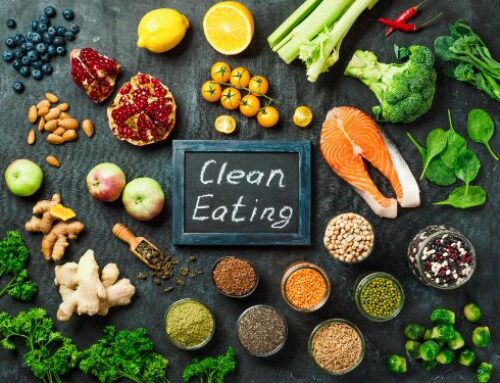Good eating habits are the key to healthy lifestyle. A balanced diet contains all the right foods in the right quantities like carbohydrates, water, proteins, high fiber content, fats, vitamins and minerals. When starting a clean diet, you may tend to eat the same foods over and over. This common pitfall may cause you to miss out on vital vitamins that affect how you look and feel.
Vitamins are organic molecules and micro-nutrients essential for proper functioning of the body. They help reinforce bones, bolster the immune system, heal wounds, repair damaged cells, and convert food into energy. Most of our essential vitamins or nutrients are obtained from the diet. The question is: are you getting what you need?
Vitamin A
This vitamin plays a significant role in reproductive behaviors, immunity, and particularly vision. It contains bet-carotene, which helps the cornea, retina, and other eye membranes to function properly. Vitamin A is abundantly found in sweet potatoes, carrots, eggs, milk, fish, and spinach. One small-medium sized sweet potato contains about 28000 international unit (IU) and 560% of recommended daily value (DV). So, it is vital to bear in mind the importance of vitamin A in your daily diet.
Vitamin B6
Vitamin B6 is an umbrella term used for six different molecular nutrients that have a same or similar effect on the body. These nutrients stabilize blood sugar, form hemoglobin, metabolize food, and synthesize antibodies to combat different types of diseases. Good sources of vitamin B6 are poultry, beef liver, and fish. In addition, garbanzo bean and chickpea are also rich in vitamin B6, which is good news for vegetarians. One cup of canned chickpea has 1.1 mg of vitamin B6 or 55% of the recommended daily value (DV).
Vitamin C
Vitamin C is an antioxidant essential for the appropriate functioning of various bodily processes such as the synthesis of neurotransmitters and protein metabolism. When it comes to the consumption of Vitamin C, most people think of citrus, but recent research studies have shown that sweet red peppers contain more Vitamin C than any other food. Other food items rich in this vitamin are broccoli, kiwi fruit, cantaloupe, and Brussels sprouts.
Vitamin D
Your body is capable of manufacturing Vitamin D when you expose it to sunlight. Vitamin B is very helpful in the process of calcium absorption, which is essential for bone growth. It is also very significant for immunity, cell growth, and the reduction of swelling/inflammation. The natural dietary sources of this vitamin are fatty fishes including salmon, swordfish, and mackerel. Vitamin D is also found in fortified foods such as cereals, milk, orange juice, and yogurt.
Vitamin E
This is another powerful antioxidant that acts as a strong vanguard for the body against free radicals. Vitamin E enhances the structure and function of the immune system, promotes functionality of blood vessels and clotting. Wheat germ oil packs (100% DV), sunflower seeds (37% DV), and almonds (34% DV) are rich sources of vitamin E. We recommend you try “Breakfast Barely with sunflower seeds and banana.”
Vitamin K
Vitamin K is an important ingredient in blood clotting or coagulation. It acts as a natural blood clotting element to stop bleeding when you cut or bruise yourself. The best source of this vitamin is green leafy vegetables. Likewise, Kale, collard greens, spinach, turnip, beet greens, and mustard are valuable sources of vitamin K that you should include in your daily diet for a high nutritional value. In addition, we recommend you to try the delicious recipe “Tuscan Kale with Plums, Almonds, and Goat Cheese.”
Niacin
Niacin is a type of Vitamin B complex, another important ingredient for the conversion of food into energy. It supports the digestive skin, neural system, and keeps the skin fresh and healthy. The best source of niacin is dried yeast, but for something more delicious and appetizing, try peanut butter or peanuts. One cup of peanuts contains 17 mg niacin, which is more than 100% of your DV. Chicken liver and beef are also rich in niacin. Try “Chocolate Peanut-Butter Bars” to boost your energy.
Changing your diet without planning for your needs can result in the tendency to overdo one particular food or eliminate an entire food group. For instance, if you are consuming (too much) food rich in selenium, it could lead to gastrointestinal upset, fatigue, hair loss, and mild nerve damage.
In a nutshell, vitamins are essential to your overall mental and physical health. Committing to a clean eating diet is just the first step towards bettering your well being. If you find yourself feeling less well, reach out to your doctor for a test to see if you are lacking in certain vitamins.





I take a multivitamin every day.